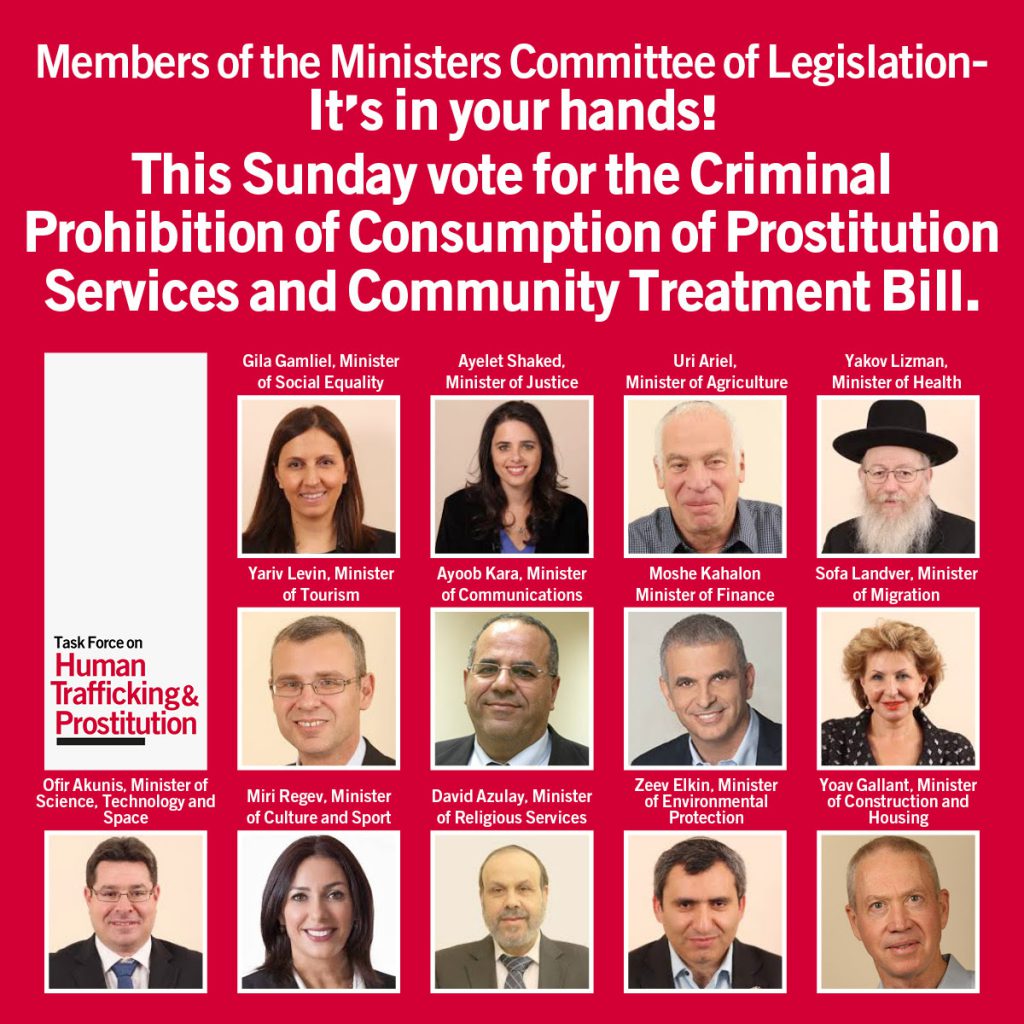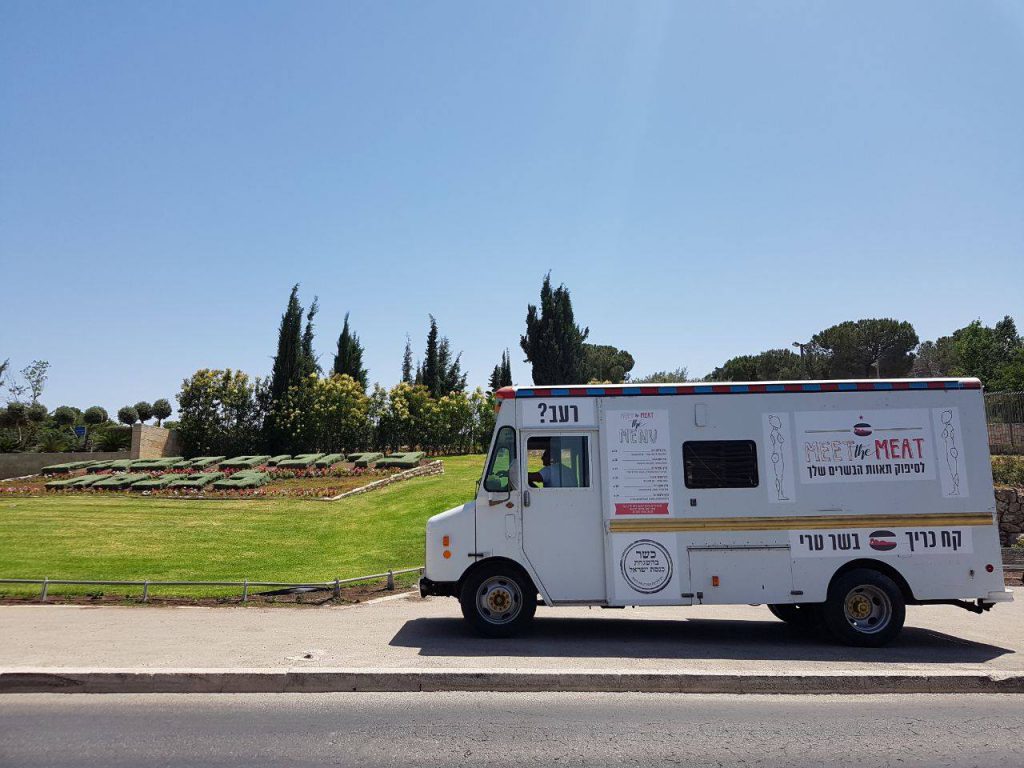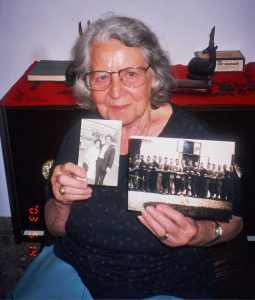Shannon Nuszen, June 28, 2017, Times of Israel
During the peak lunch hour in the middle of Jerusalem, at the Machane Yehuda shuk today, the arrival of a new food truck caused quite a bit of rukus. Calls to “come get your meat” on a loudspeaker, and girls passing out small sandwich bags, brought about large crowds expecting to get a free taste.
Meet the Meat was a typical looking roadside food truck, with a large kosher sign. The difference was that rather than selecting your cut of meat from the cow diagram, there was an image of the female body. Each portion of the female body was labeled and numbered. The menu consists of sexually descriptive names of the female anatomy.
If you were to take one of these free sandwich bags, you’d find a very graphic story of various women who resort to prostitution for income. It also describes the type of client they serve, as well as the sexual services they provide. The sandwich inside was not edible, and was an unpleasant raw piece of meat between a bun. It was quite shocking to all who approached the truck, which was obviously the point.
A little-known fact that many learned today is that prostitution is legal in Israel, but there is very little legislation addressing the issue. For instance, the buying or selling of sex is completely legal, but the profit of those services cannot involve a 3rd party. In other words, it’s an individually run business – no pimping allowed.
The organizers are part of a local NGO named “The Task Force on Human Trafficking and Prostitution” (TFHT), along with M&C Saatchi Advertising firm.
The legalized status in Israel is causing the industry to soar, and the demand for more prostitutes is a huge concern. “Beautiful young men and women end up trapped in the life of prostitution” explained one of the activists. The organizers of the demonstration explained that they hoped to shed light on the problem, and promote bills currently being presented that introduce the “Nordic Model.” The Nordic Model approach to prostitution (also known as the Sex Buyer Law) decriminalizes all those who are prostituted, provides support services to help them exit, and makes buying people for sex a criminal offence, in order to reduce the demand that drives sex trafficking. “If we remove the legalized status of prostitution in Israel, we believe it’s an important step in solving the problem” said one of the young women handing out the sandwich packs.






 During the Shoah, Orna, together with her sisters Olga (1922-2006) and Malvina (1926-2010) and mother, saved more than 25 Jewish men from a work camp in Hungary by finding them hiding places and providing them with food. Thus, she brought life to countless, future, Jewish generations. We are privileged to have extended assistance to her for the past 16 years and to have accompanied her to her place of burial.
During the Shoah, Orna, together with her sisters Olga (1922-2006) and Malvina (1926-2010) and mother, saved more than 25 Jewish men from a work camp in Hungary by finding them hiding places and providing them with food. Thus, she brought life to countless, future, Jewish generations. We are privileged to have extended assistance to her for the past 16 years and to have accompanied her to her place of burial.


